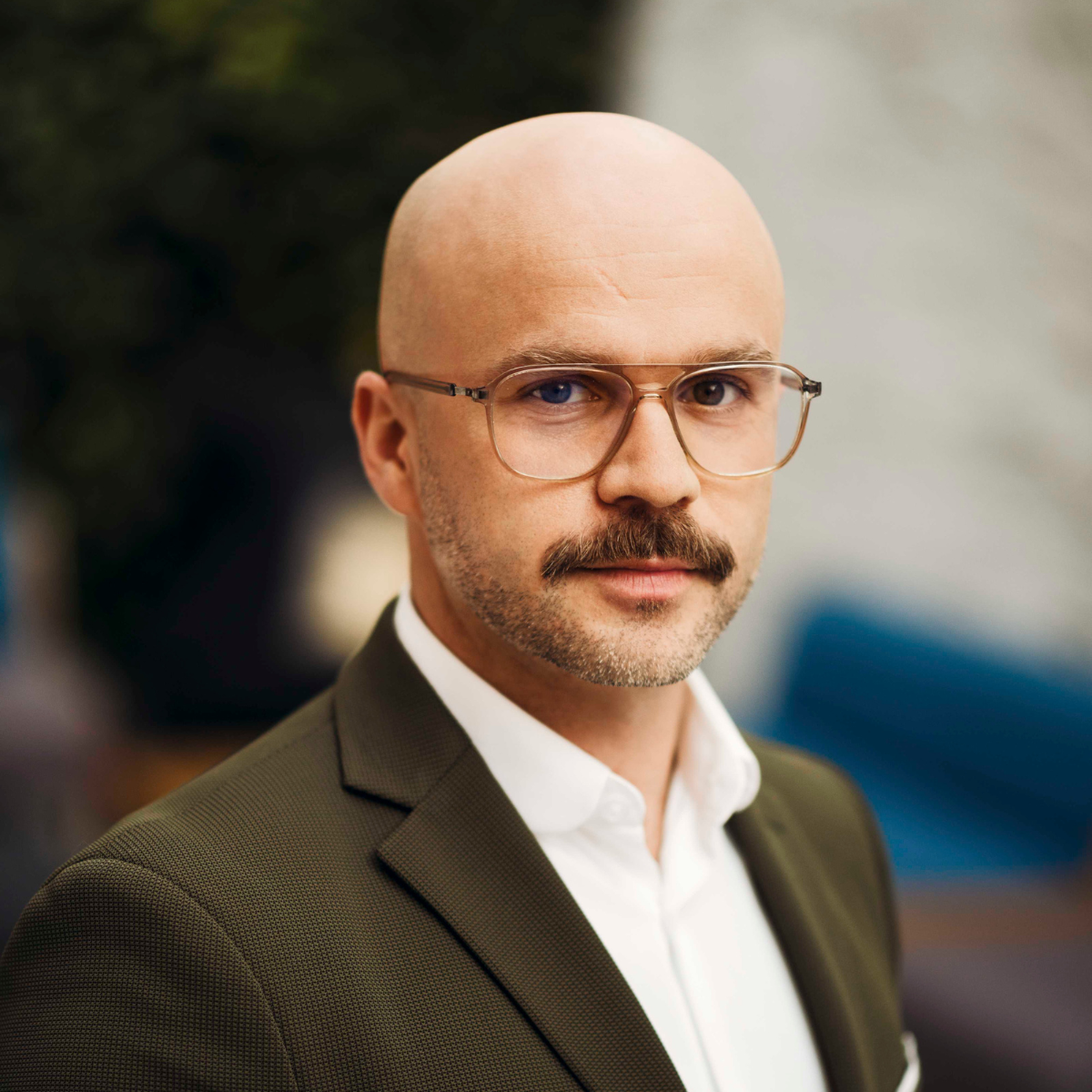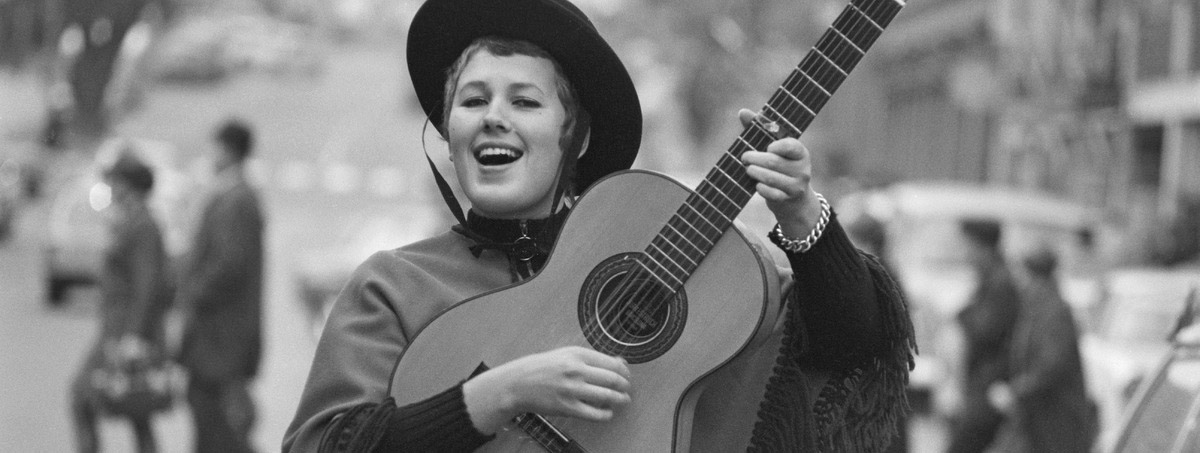Report: CRE-AI-TIVE. Creatives in the Age of AI
We took a look at how new AI-based tools are reshaping the fields of architecture, design, fashion, music and video games in Poland ã and how do the creators themselves feel about using AI in their work process.
ãCRE-AI-TIVE. Creatives in the Age of AIã analyses the impact of artificial intelligence on the design, fashion, architecture, music and video game industries in Poland. Based on extensive desk research, 23 in-depth interviews with representatives of the creative sectors and a quantitative survey, the study reveals the dual nature of AI: on the one hand, as a catalyst for innovation that is transforming creative processes and business models; on the other, as a source of significant legal, ethical and economic challenges.
The majority of Polish creators (86%) already use AI tools, primarily to optimise and accelerate their work. AI is widely viewed as a partner in the creative process, supporting idea generation and prototyping. At the same time, however, artists express serious concerns about the unauthorised use of their works for model training, which has created a legal ãgrey areaã. Other risks include cultural homogenisation, job losses (particularly in entry-level positions), a shortage of relevant skills and the absence, or limited awareness, of legal frameworks designed to safeguard the creative industries.
The report underscores the urgent need to refine existing legal frameworks and establish clear ethical guidelines to ensure transparency and the effective protection of intellectual property. Key recommendations include developing educational programmes, supporting human creativity and promoting cross-sector dialogue. The report also calls for the mandatory labelling of AI-generated content and the disclosure of training datasets by technology companies. We argue that a strategic and responsible approach to AI will enable Polandãs creative sectors to fully harness the potential of this transformative technology.
With CRE-AI-TIVE, we wish to create a space for open, data-driven dialogue about the challenges and benefits arising from AI tools ã we believe that a responsible discussion around the ethics and use of new technologies is the foundation of a strong economy based on knowledge and respect for the work of creative professionals.
Download the report in English or Polish:
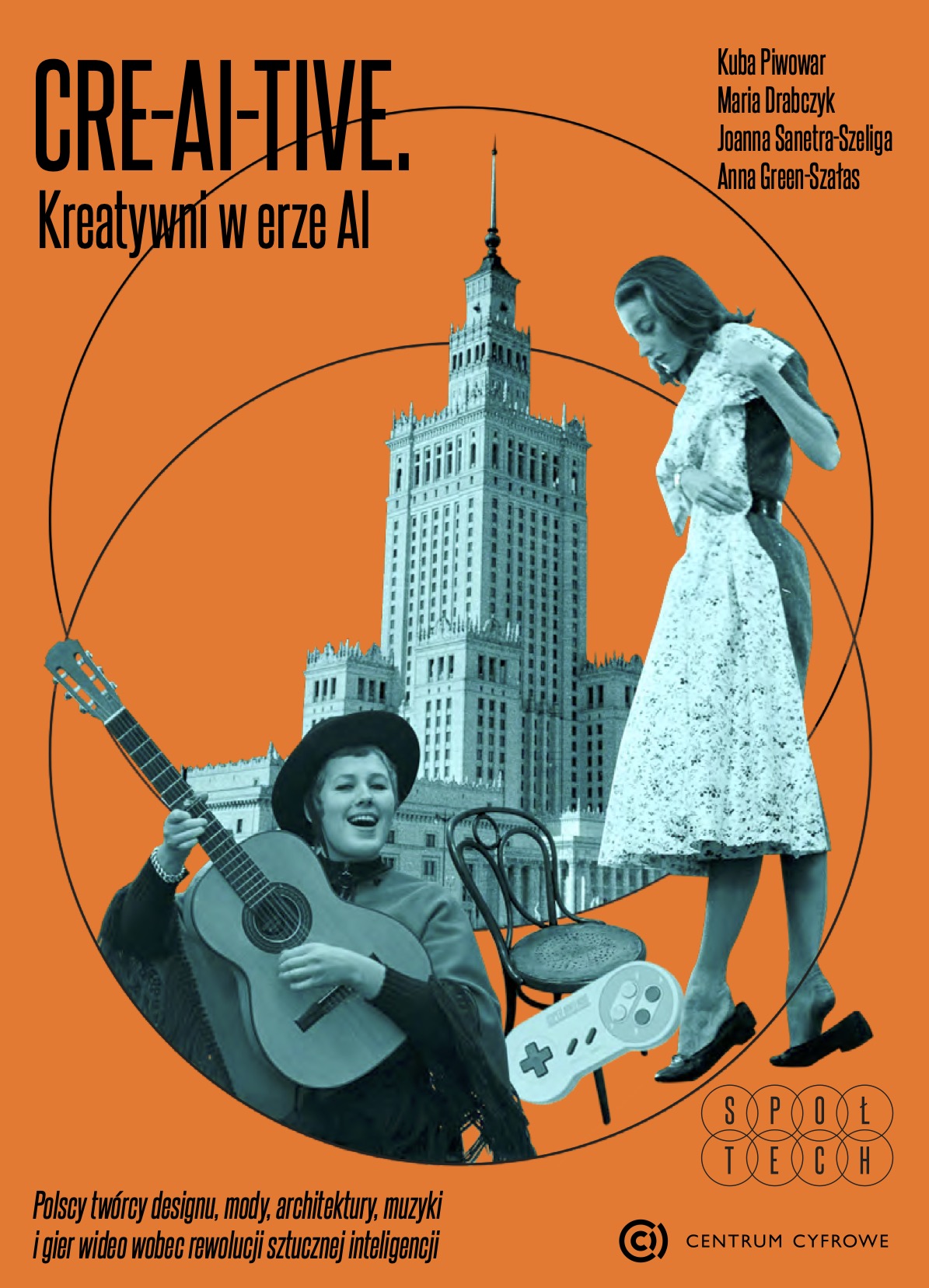 |
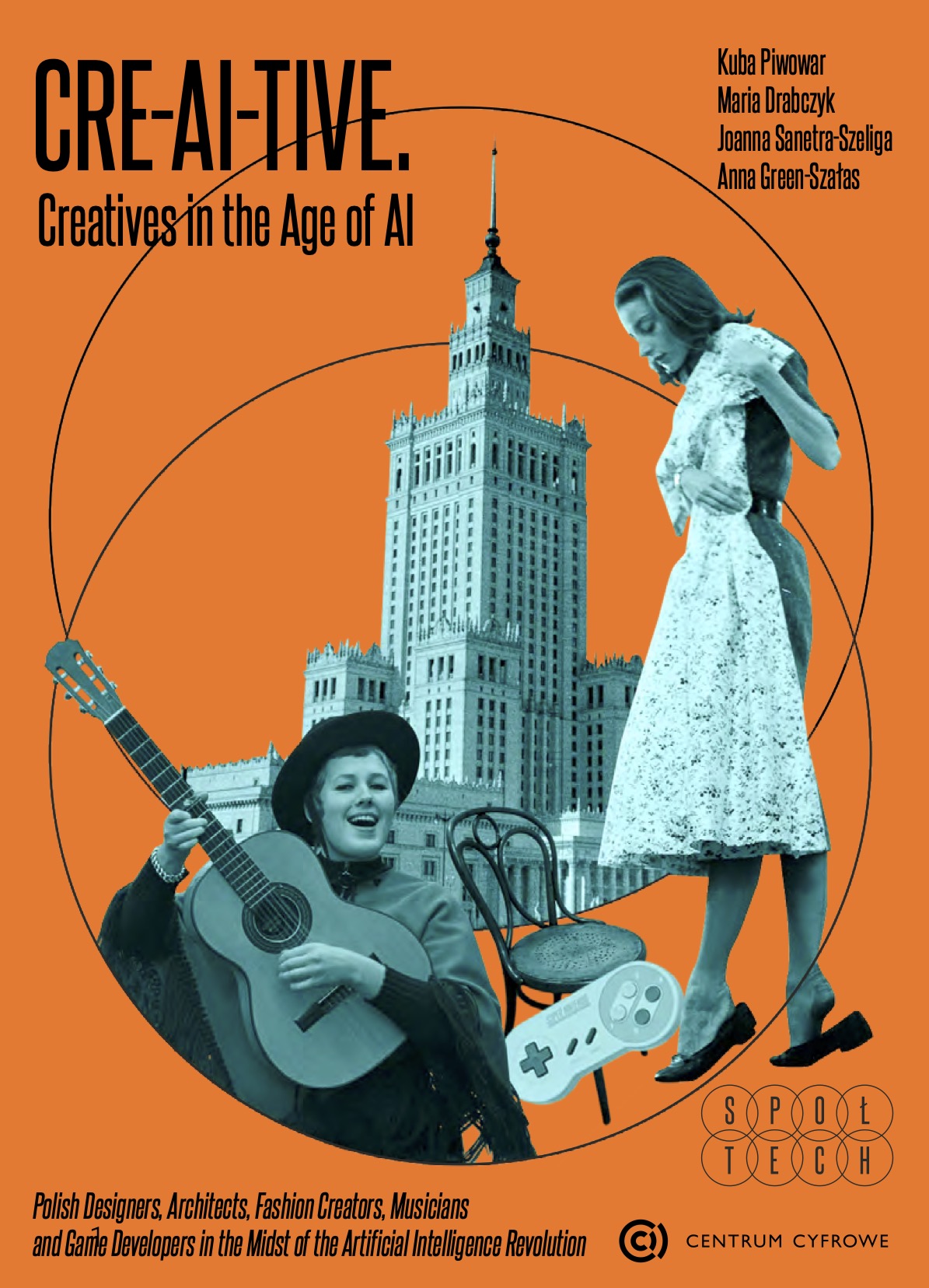 |
The authors would like to thank all interview and workshop participants, as well as everyone who completed the online survey. We also extend our sincere gratitude to the National Film Archive ã Audiovisual Institute (FINA) and the éû°dé¤ Design Festival for their support in carrying out this project.
Research team:
- Project leader: Kuba Piwowar, PhD, Centrum Cyfrowe Foundation, SWPS University
- Maria Drabczyk, Centrum Cyfrowe Foundation
- Joanna Sanetra-Szeliga, PhD, Cracow University of Economics
- Anna Green-Szaéas, Centrum Cyfrowe Foundation
Editing and proofreading: Katarzyna Tran Trang / bookowska.pl
Layout, graphics and cover design: Kamila Krzewska
English translation: Supertlumacz.pl
Centrum Cyfrowe Foundation
SpoéTech Project
Warsaw 2025
The publication is available under the Creative Commons license: Attribution 4.0 (CC BY 4.0). We encourage its reproduction and use. Please ensure that proper credit is given to the authors and funders, and that a link to the source is included: www.centrumcyfrowe.pl.
 |
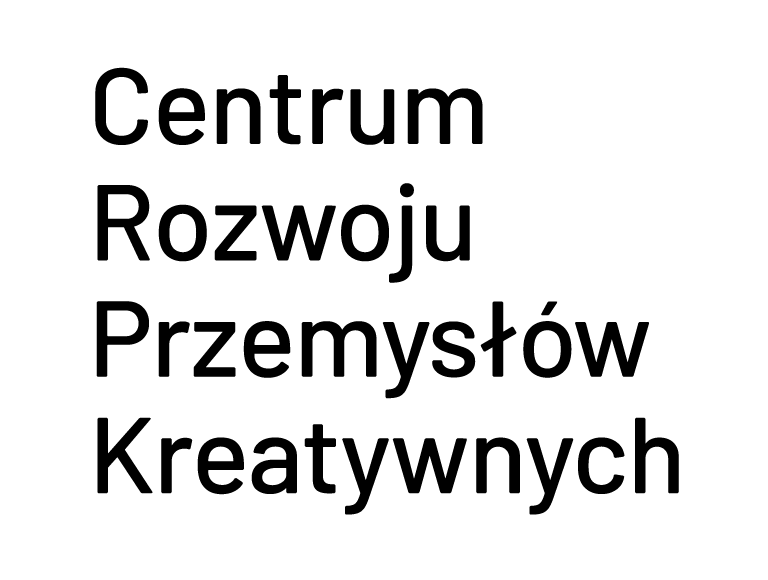 |
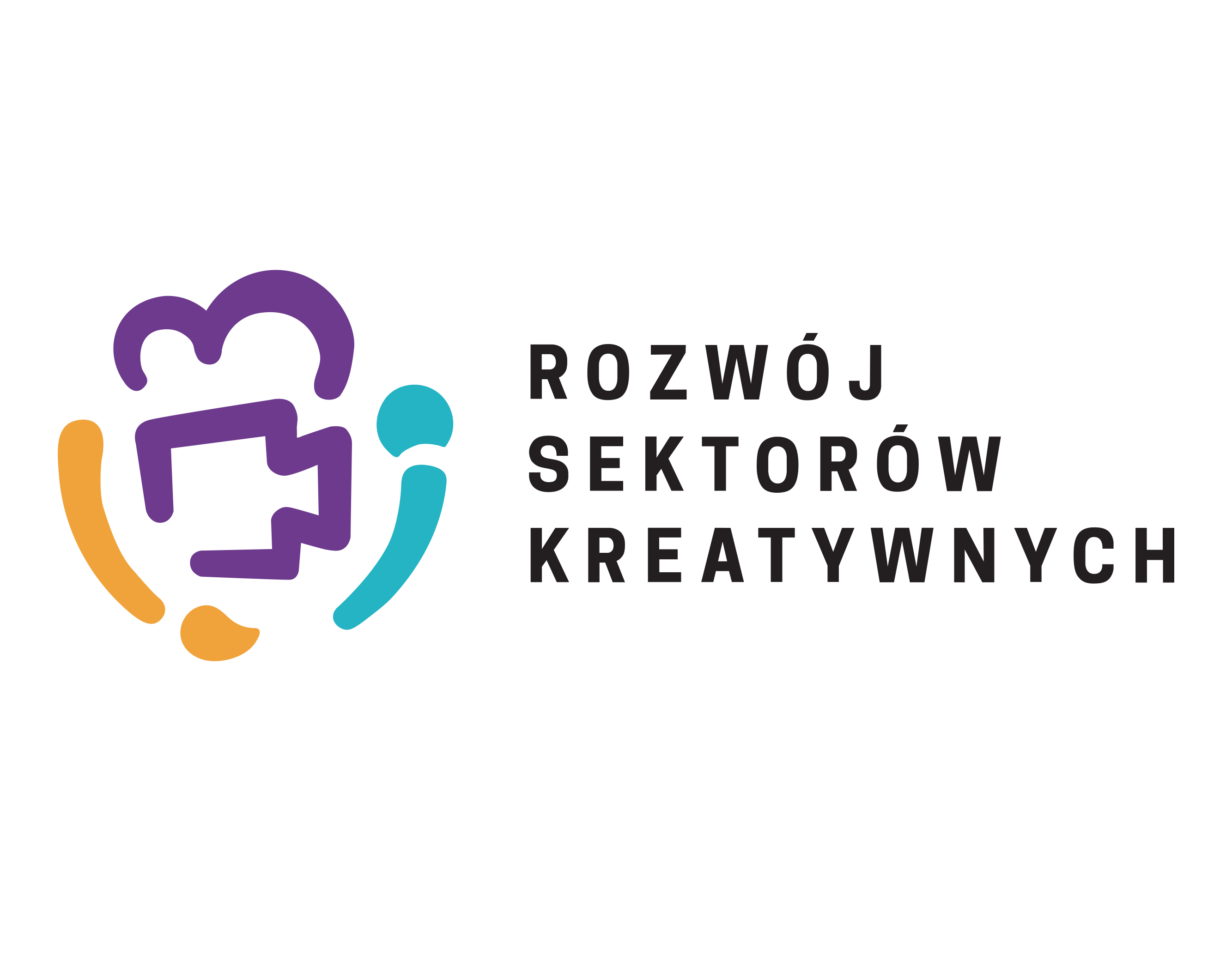 |
Co-financed by the Minister of Culture and National Heritage under the Creative Industries Development Centre’s own programme: ãRozwû°j Sektorû°w Kreatywnychã.
The cover design incorporates following images:
- ãMimmi Mustakallio, the Finnish pop singer, in 1964ã by V. K. Hietanen, Finnish Heritage Agency, Finland, CC BY.
- ãThe Balanchines at Diorã, 1948ã57, U.S. National Archives, Public Domain..
- Super Nintendo (SNES) gaming controller, The Vanamo Online Game Museum, Public Domain.ô
- Palace of Culture and Science in Warsaw, 1960, FORTEPAN / RomûÀk ûva, CC BY SA.ô
- Thonet chair design, 1976, Museum of Gothenburg, Sweden, CC BY.ô
